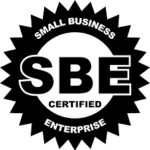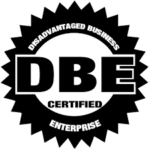
Part 1: The Unexpected Masterclass
No one talks about how humbling it is to re-enter the dating world after a long marriage. There’s no onboarding. No training manual. Just awkward conversations, weird apps, and the slow realization that your identity has been largely shaped by a relationship that no longer exists.
For me, dating after divorce wasn’t just about relationships. It became a crash course in self-awareness, communication, and courage. And ironically—it sharpened the very qualities I needed most as a leader.
Part 2: Reps I Never Knew I Needed
There’s a kind of leadership that comes from the boardroom—strategy, structure, vision. And then there’s the kind that’s forged in vulnerable, deeply human moments.
Dating demanded emotional agility I hadn’t exercised in decades. I had to:
-
- Practice active listening—not to respond, but to understand.
-
- Navigate ambiguity and mixed signals without losing confidence.
-
- Be clear about who I am, without performance or pretense.
The parallel to leadership became obvious:
If I couldn’t connect with authenticity in my personal life, how could I expect to lead others with integrity?
These were the reps I never got in business school—but they made me sharper, more present, and more human in every room I entered.
Part 3: I Became My Own Transformation Client
In hindsight, I realized something powerful:
I used the same Strategic Transformation model I bring to clients—on myself.
It wasn’t deliberate. I wasn’t whiteboarding my divorce recovery like a project plan. But the process was eerily familiar:
Diagnose Reality with Brutal Honesty
My marriage was over. My identity was fractured. And I was leading a company while silently rebuilding my foundation.
Rediscover Core Identity
Like any organization in transition, I had to return to core values. Not roles. Not titles. Just truth.
Design a New Operating Model
Dating meant testing new ways of being: emotionally available, unapologetically honest, less concerned with outcome, more tuned into alignment.
Pilot. Fail. Learn. Repeat.
Some dates worked. Some didn’t. I treated the process like transformation—iterative, insightful, never wasted.
Align Personal and Professional
The changes I made internally cascaded into my leadership. I communicated more clearly. I connected more deeply. I led with more humanity.
I had become my own client. And I emerged not just healed—but upgraded.
Part 4: What Dating Taught Me About Leadership
Dating forced me to answer questions I had avoided:
-
- What do I really want?
-
- What am I afraid of?
-
- What am I pretending not to know?
These weren’t just relationship inquiries—they were strategic ones. I started applying the same clarity to my business:
-
- Which partnerships were rooted in mutual respect?
-
- Which clients drained our energy with no return?
-
- Which old habits no longer fit the mission?
The more I got honest in my personal life, the bolder I became in business. Dating gave me a mirror. Leadership gave me the playground to apply what I saw.

Part 5: Reclaiming My Voice
There’s a voice you lose in long-term relationships. You compromise. You adapt. You forget the sound of your own truth.
Dating reintroduced me to mine.
Not the voice I use to close deals or pitch ideas—but the one that speaks without performance. The one that tells the truth.
And when I found that voice personally, I brought it into my company.
-
- I stopped over-editing.
-
- I started saying the thing that mattered.
-
- I led with clarity—not charisma.
The impact? My team trusted me more. My clients resonated deeper. My message landed harder.
Part 6: Culture Change Starts With Personal Courage
Once I got real in my personal life, it became impossible to tolerate anything fake at work.
I stopped trying to protect my team from discomfort—and started inviting them into growth. We had real conversations:
-
- About burnout
-
- About purpose
-
- About when to evolve—or exit
The emotional intelligence I developed through dating became the exact EQ my company needed to grow. I wasn’t managing culture—I was living it.
Part 7: Strategic Rebirth Isn’t Just for Startups
Dating after 30 years wasn’t just awkward—it was liberating.
Because it reminded me that reinvention isn’t just for startups. It’s for people, too. We get to change. We get to rebuild. We get to become better after life breaks us.
Divorce didn’t destroy me. It stripped me back to blueprint. Dating didn’t save me. It sharpened me. Leadership became less about being impressive—and more about being real.
Final Thought: Human is the New Superpower
We live in an age obsessed with optimization—scale, efficiency, automation. But what we crave most is connection. And connection starts with courage.
If you’re navigating personal upheaval, don’t hide it. Harvest it. Let it shape you. Let it build your next level of leadership.
Because the leaders we trust aren’t the ones who’ve never been broken. They’re the ones who’ve been broken, rebuilt, and are willing to show their blueprint.
That’s real power. And that’s the leader I’m still becoming.



